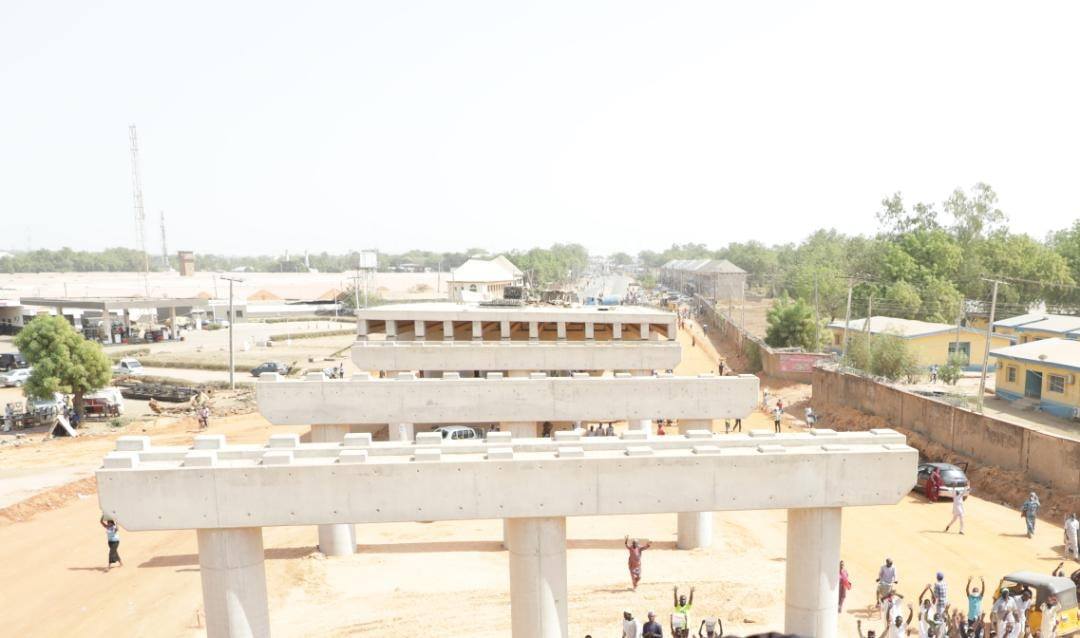Business
FG, World Bank Begin Process To Rebase Nigeria’s GDP

The Federal Government in collaboration with the World Bank have commenced the process to rebase Nigeria’s Gross Domestic Product (GDP).
GDP is the final value of the goods and services that are produced within a nation’s geographic boundaries during a specified period of time, normally within a year.
Also, rebasing of GDP entails the replacement of the old base year used for compiling the GDP with a new, more recent, base year for computing the constant price estimates.
In its bid to rebase Nigeria’s GDP, the National Bureau of Statistics (NBS) announced on Wednesday that following the successful completion of listing of establishments, a component of National Business Sample Census (NBSC), the NBS commenced National Business Sample Survey (NBSS), otherwise known as the survey of establishments.
It said the NBSS was also a component of NBSC which involves in-depth study of sampled establishments based on the sectors identified in business sample census.
The bureau’s spokesperson, Ichedi Sunday, said in a statement issued in Abuja that ‘the objectives of the National Business Sample Survey include to rebase the Gross National Product from 2010 to 2018/2019’.
The objective also includes “to provide sectorial data at national and state levels, determine the structure of the Nigerian economy, determine the sectors that drive the Nigerian economy and those that require government intervention to improve them.”
Others, he said, were to serve as a benchmark for subsequent commercial and industrial sector statistics surveys.
According to the bureau, the survey covers the 36 states of the federation, including the Federal Capital Territory.
It said, “In all, 17 sectors of the Nigerian economy will be covered during the survey exercise. Already, data collection on the survey by NBS staff has commenced with lodgments of questionnaires in the selected establishments.
“NBS appeals to the selected establishments to provide the necessary information for the survey as their participation is germane for the successful completion of the survey exercise.”
The NBS last rebased the country’s GDP in April 2014, as it announced changes to the way it calculated GDP, changing the calculation to more accurately reflect current prices and market structure.
At the time, the overall estimate of the nation’s economy size increased significantly as the estimate of total GDP of Nigeria increased from N42.4 million ($270 billion) to N80.2 trillion ($510 billion), an 89 per cent increase.
Analysts explain that GDP rebasing enhances planning and investment decisions, as the performance of government in revenue collection, capital spending, among others, are made clearer.
Business
Two Federal Agencies Enter Pack On Expansion, Sustainable Electricity In Niger Delta

Business
Why The AI Boom May Extend The Reign Of Natural Gas

Business
Ogun To Join Oil-Producing States ……..As NNPCL Kicks Off Commercial Oil Production At Eba

-

 Sports3 days ago
Sports3 days ago2026 WC: Nigeria, DR Congo Awaits FIFA Verdict Today
-
Politics3 days ago
ADC, PDP, LP Missing As INEC Set For By- Elections In Rivers
-

 Environment3 days ago
Environment3 days agoOxfam, partners celebrate 5 years of climate governance programmes in Nigeria
-
Politics3 days ago
FG’s Economic Policies Not Working – APC Chieftain
-

 Politics3 days ago
Politics3 days ago2027: Diri Unveils RHA LG Coordinators, APC Congress Panel
-

 Politics3 days ago
Politics3 days agoReps To Meet,’Morrow Over INEC’s 2027 Election Timetable
-

 Politics3 days ago
Politics3 days agoGroup Continues Push For Real Time Election Results Transmission
-
Sports3 days ago
Sunderland Overcome Oxford Challenge

